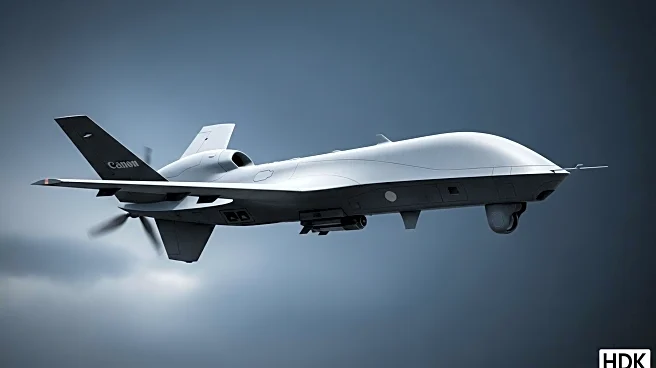What's Happening?
Former Israeli Defense Minister Yoav Gallant has criticized the original plan for an attack on Iran, describing it as 'too complex and not lethal enough.' According to Gallant, the plan required billions of shekels and extensive intelligence collection, which led to continuous delays. He proposed an alternative strategy, known as the '100 day paper,' advocating for aerial strikes on the Iranian regime. Gallant's comments highlight the challenges faced in developing a viable military strategy against Iran, emphasizing the need for a more straightforward and effective approach.
Why It's Important?
The criticism of the original attack plan underscores the difficulties in formulating military strategies that are both effective and timely. Gallant's alternative proposal suggests a shift in focus towards aerial strikes, which could potentially offer a more direct and impactful method of addressing threats from Iran. This development is significant for U.S. foreign policy and defense strategies, as it may influence international military collaborations and the approach towards Iran's nuclear capabilities. The situation also highlights the complexities involved in intelligence gathering and resource allocation for military operations.
What's Next?
Gallant's proposal for aerial strikes may prompt further discussions and evaluations within Israeli defense circles and among international allies, including the U.S. The shift in strategy could lead to changes in military planning and resource distribution, potentially affecting regional stability and diplomatic relations. Stakeholders, including political leaders and defense experts, may need to reassess their positions and strategies in light of these developments.
Beyond the Headlines
The debate over military strategies against Iran raises ethical and legal questions regarding the use of force and the implications for civilian populations. It also reflects broader geopolitical tensions and the ongoing struggle to balance national security interests with international diplomatic efforts. The situation may influence long-term shifts in defense policies and international relations.











